To accompany your Come Follow Me study for May 19-25
In addition to reading sections 49-50 this week, you will want to:
- Read Chapter 18: Doctrine and Covenants 46–49 (churchofjesuschrist.org)
- Read Chapter 19: Doctrine and Covenants 50 (churchofjesuschrist.org)
- Read Joseph Smith’s Revelations, Doctrine and Covenants 49 (churchofjesuschrist.org)
- Read Joseph Smith’s Revelations, Doctrine and Covenants 50 (churchofjesuschrist.org)
- Read “Leman Copley and the Shakers,” Revelations in Context, 117-21, at https://www.churchofjesuschrist.org/study/manual/revelations-in-context/leman-copley-and-the-shakers?lang=eng
- Read “Religious Enthusiasm Among Early Ohio Converts, Revelations in Context, at https://www.churchofjesuschrist.org/study/manual/revelations-in-context/religious-enthusiasm-among-early-ohio-converts?lang=eng
- Read “Doctrine and Covenants 49-50,” Historical Resources, at https://www.churchofjesuschrist.org/study/history/doctrine-and-covenants-historical-resources/20?lang=eng
- Watch the following video:
If you would like a Kahoot game related to these sections that you could use with your family or class, click here: https://create.kahoot.it/share/doctrine-and-covenants-49-50/318c9205-57c3-4e0b-98db-8571cd213120. To use it with a group, after clicking on this link, you will need to log into Kahoot, creating a free account if you have not done so previously, then click on the blue “Host Live” button or the gray “Assign” button, depending on how you wish to use the Kahoot. Some of the Kahoot questions may presuppose that the player has read through the suggested answers to the following Points to Ponder and at least has browsed the Institute student manual as well.
Points to Ponder in Doctrine and Covenants 49-50
1. List four prominent erroneous beliefs of the Shakers and the verse or verses in D&C 49 which refutes each.
2. List at least two teachings of the Shakers which Latter-day Saints could accept.
3. What examples have you personally seen of people who desired “to know the truth in part, but not all”? (49:2)
3a. What application does 49:4 have for missionary work today?
4. What verse might we show to those who have figured out that the Second Coming will occur on April 6, 2030?

5. What is the most obvious reason that the United Society of Believers in Christ’s Second Appearing has not prospered numerically the way our Church has (besides the fact that it’s not the Lord’s true church)?
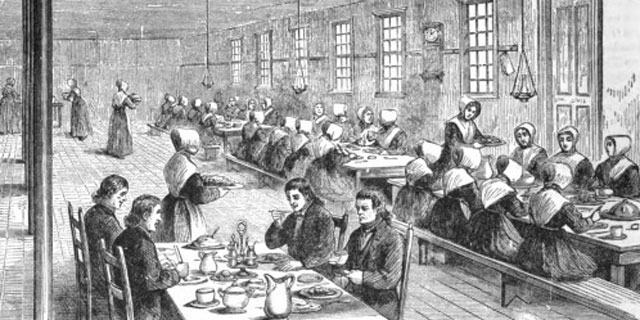
6. How can you defend the one time Latter-day Saint practice of plural marriage in view of the clear specification in 49:16 that men should “have one wife”?
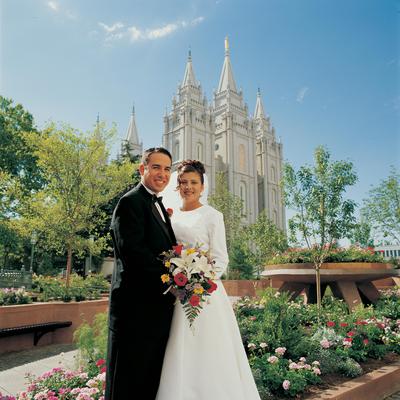
7. What are at least two reasons marriage between a man and a woman “is ordained of God unto man”?
8. What does D&C 49 have to do with why Latter-day Saints tend to have large families?

9. What implications does 49:21 have for hunting and fishing?

10. In view of 49:19, how might the awkward phraseology of 49:18 be reworded to make it more literally correct?
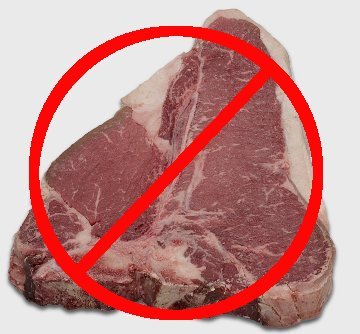
11. Since Joseph Smith had received 49:22, why did he so much enjoy the hymn “A Poor Wayfaring Man of Grief,” which seems therefore to have some false doctrine in it?
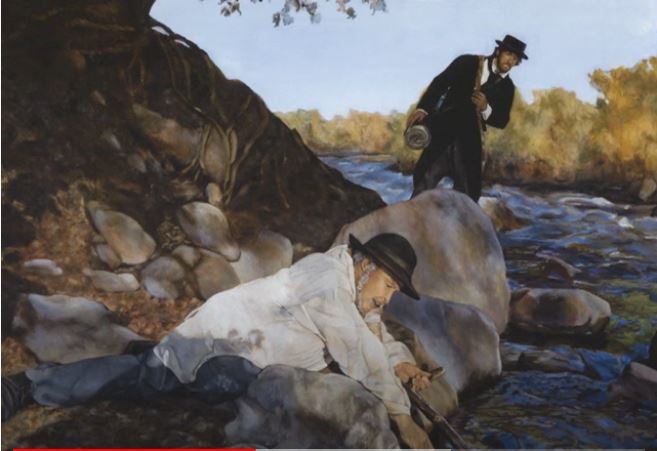
12. What answer does D&C 49 give to the question of whether it is possible that the Savior might return to earth this weekend?
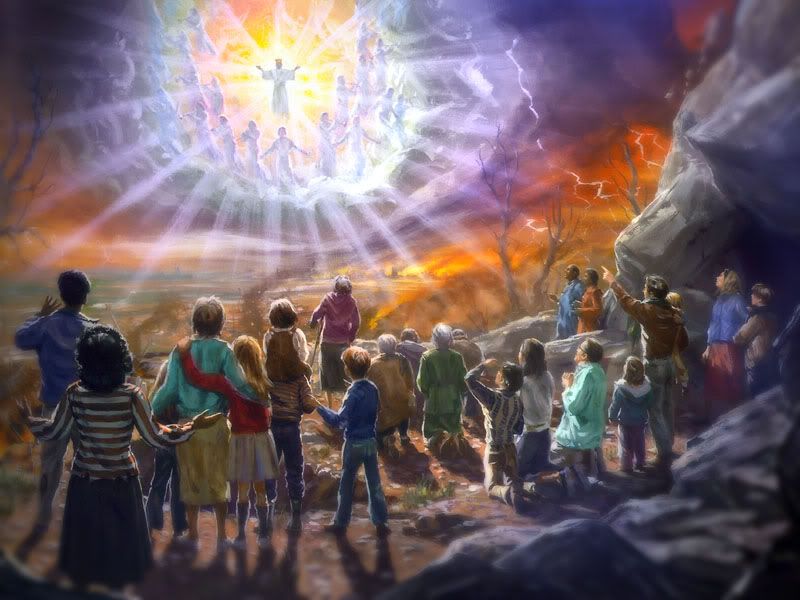
13. What does it mean that prior to the Second Coming “Jacob shall flourish in the wilderness, and the Lamanites shall blossom as the rose”? (49:24)
14. What do you understand to have been the “abominations in the church” to which the Lord was referring in 50:4?
14a. What would be several examples of potential hypocrisy among Latter-day Saints, against which the Lord warns in 50:6-8?
15. After boiling section 50 down to its essence, what are the practical guidelines that it gives us as to how to distinguish true spiritual phenomena from false ones?
16. What does it mean to “edify”? What would be examples of teaching which did not edify?
17. What is the danger in being too exuberant in our denunciation of Satan and his emissaries?

Why should we pray only for those things we are inspired to pray for? If the Lord has to tell us what to pray for, why doesn’t He just go ahead and give it to us to start with, without our having to ask?
18. Which verse in D&C 50 might be considered the “tenderest”?
19. Which two passages in D&C 50 did you consider to contain the most wonderful promises?
Possible Answers to Points to Ponder in Doctrine and Covenants 49-50
1. List four prominent erroneous beliefs of the Shakers and the verse or verses in D&C 49 which refutes each.
- Meat forbidden–v. 18-21
- celibacy–v. 15-17
- Jesus to come in form of a woman–v. 22
- baptism not essential–v. 13.
2. List at least two teachings of the Shakers which Latter-day Saints could accept.
In Revelations in Context, we read: “The two faiths shared a belief in a general apostasy, modern prophecy, the agency of man, and the ideal of a communal life.“
3. What examples have you personally seen of people who desired “to know the truth in part, but not all”? (49:2)
Your choice. The following slide shows some possibilities:
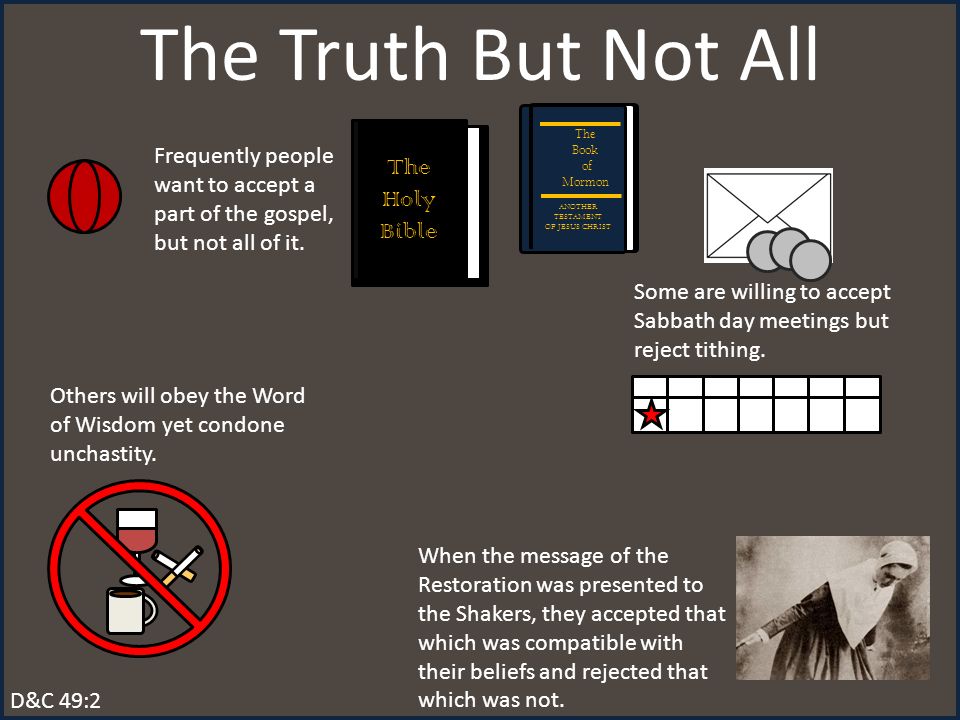
3a. What application does 49:4 have for missionary work today?
McConkie and Ostler, in their Revelations of the Restoration, offered the following commentary on this verse: “Our commission is to declare the message of the Restoration from the revelations of the Restoration. Such a course is consistently rewarded with a marvelous outpouring of the Spirit and a rich harvest of souls. Those insisting on giving credence to the restored gospel by ‘proving’ it, as it were, from Old and New Testament texts or arguing for its credibility in some other way do not enjoy the same outpouring of the Spirit or the same power of conversion.”
4. What verse might we show to those who have figured out that the Second Coming will occur on April 6, 2030?
49:7
5. What is the most obvious reason that the United Society of Believers in Christ’s Second Appearing has not prospered numerically the way our Church has (besides the fact that it’s not the Lord’s true church)?
Their belief in celibacy!
6. How can you defend the one time Latter-day Saint practice of plural marriage in view of the clear specification in 49:16 that men should “have one wife”?
That was the Lord’s law in 1831, just as his law was different later on and changed back again in 1890. It’s crucial to keep looking at the latest instructions from the Lord rather than some previous ones suited to another time and place.
7. What are at least two reasons marriage between a man and a woman “is ordained of God unto man”?
- It is a great school in which men and women can develop such attributes as love, patience, generosity, and forgiveness.
- It permits them to bring children into the world, thereby fulfilling the purpose of the earth’s creation.
- It is a key to the joy here and hereafter that men and women are destined to enjoy.
8. What does D&C 49 have to do with why Latter-day Saints tend to have large families?
It indicates in v. 16-17 that there is a certain quota of spirits who were destined in the premortal life to be born on this planet and that procreation is one of the major purposes of marriage.
9. What implications does 49:21 have for hunting and fishing?
It appears that the Lord is not pleased with those who kill for the sport of it and who don’t eat the meat–or whose primary motivation is to kill and who eat the meat just to not feel so guilty. President Joseph F. Smith expressed his feelings on the subject in these words:
“I have just a few words to say … in relation to shedding blood and to the destruction of life. I think that every soul should be impressed by the sentiments that have been spoken, and not less with reference to the killing of our innocent birds, natives of our country, who live upon the vermin that are indeed enemies of the farmer and to mankind. It is not only wicked to destroy them, it is abominable in my opinion. I think that this principle should extend, not only to the bird life, but to life of all animals. When I visited, a few years ago, the Yellowstone National Park, and saw in the streams and the beautiful lakes, birds swimming quite fearless of man, allowing passers-by to approach them as closely almost as tame birds, and apprehending no fear of them, and when I saw droves of beautiful deer herding along the side of the road, as fearless of the presence of men as any domestic animal, it filled my heart with a degree of peace and joy that seemed to be almost a foretaste of that period hoped for when there shall be none to hunt and none to molest in all the land especially among all the inhabitants of Zion. These same birds, if they were to visit other regions inhabited by man, would, on account of their tameness, doubtless become more easily a prey to the gunner. The same may be said of those beautiful creatures–the deer and antelope. If they should wander out of the park, beyond the protection which is established there for these animals, they would become, of course, an easy prey to those who were seeking their lives. I never could see why a man should be imbued with a blood-thirsty desire to kill and destroy animal life. I have known men–and they still exist among us–who enjoy what is, to them, the “sport” of hunting birds and slaying them by the hundreds, and who will come in after a day’s sport, boasting of how many harmless birds they have had the skill to slaughter, and day after day, during the season when it is lawful for men to hunt and kill (the birds having had a season of protection and not apprehending danger) go out by scores or hundreds, and you may hear their guns early in the morning on the day of the opening, as if great armies had met in battle; and the terrible work of slaughtering the innocent birds goes on.
“I do not believe any man should kill animals or birds unless he needs them for food, and then he should not kill innocent little birds that are not intended for food for man. I think it is wicked for men to thirst in their souls to kill almost everything which possesses animal life. It is wrong. I have been surprised at prominent men whom I have seen whose very souls seemed to be athirst for the shedding of animal blood. They go off hunting deer, antelope, elk, anything they can find, and what for? “Just the fun of it!” Not that they are hungry and need the flesh of their prey, but just because they love to shoot and to destroy life. I am a firm believer, with reference to these things, in the simple words of one of the poets:
“’Take not away the life you cannot give,
For all things have an equal right to live.’”
10. In view of 49:19, how might the awkward phraseology of 49:18 be reworded to make it more literally correct?
Change “forbiddeth” to “commandeth,” or “abstain from” to “eat.” It’s been so clarified in the Spanish translation.
11. Since Joseph Smith had received 49:22, why did he so much enjoy the hymn “A Poor Wayfaring Man of Grief,” which seems therefore to have some false doctrine in it?
If one takes the hymn symbolically, in the spirit of Matthew 25, it has a great message, even if we understand that Jesus doesn’t literally go around in disguise.
12. What answer does D&C 49 give to the question of whether it is possible that the Savior might return to earth this weekend?
It won’t happen. While v. 23 could occur overnight, verses 24-25 could not.
13. What does it mean that prior to the Second Coming “Jacob shall flourish in the wilderness, and the Lamanites shall blossom as the rose”? (49:24)
This prophecy is literally being fulfilled. The descendants of the Lamanites are principally found in Latin America, not on US reservations. There are nearly 7 million members in Latin America, and Church growth is far faster there than in the US, Europe or most of Asia. Having been blessed to live in Latin America for a total of nearly 13 years, I have been amazed at the faith, commitment, and competence of members there. An NBC News article in 2016 didn’t exaggerate when its headline proclaimed: “The Future of the Mormon Church? It’s Latino.” It no longer seems an exaggeration that, as 3 Nephi 21:23 promises, repentant Gentiles “shall assist my people the remnant of Jacob, and also as many of the house of Israel as shall come, that they may build a city, which shall be called the New Jerusalem.”
14. What do you understand to have been the “abominations in the church” to which the Lord was referring in 50:4?
50:2 suggests that it would include the false spiritual manifestations among them. 50:6 additionally singles out the “deceivers and hypocrites” among them.
14a. What would be several examples of potential hypocrisy among Latter-day Saints, against which the Lord warns in 50:6-8?
Among others, it could include such hypocritical actions and attitudes as:
- Preaching Charity but Neglecting the Poor
- Emphasizing Obedience While Judging Others Harshly
- Advocating Family Values While Failing at Home
- Teaching Humility While Seeking Status
- Condemning Sins Selectively
- Promoting Missionary Work but Avoiding Real Outreach
- Observing Outward Ordinances While Ignoring Inner Conversion
15. After boiling section 50 down to its essence, what are the practical guidelines that it gives us as to how to distinguish true spiritual phenomena from false ones?
(1) The manifestation should not be puzzling to one who himself has the Spirit, especially after prayer on the subject (50:15, 31); (2) it should edify (50:23). Strange behaviors, such as those described under the subheading “Strange Spiritual Manifestations” in the article entitled “Religious Enthusiasm Among Early Ohio Converts” in Revelations in Context, fail on both counts.
16. What does it mean to “edify”? What would be examples of teaching which does not edify?
To “edify” (from the Latin aedificare, meaning “to build up”) means teaching that:
- Strengthens faith in Christ and His doctrine.
- Inspires righteous action and deeper conversion.
- Unifies rather than divides (see D&C 50:21).
- Brings light—clarity, truth, and the Spirit (D&C 50:24).
Examples of Teaching That Does Not Edify
- Doctrinal Debates Without Charity (Example: Arguing over speculative doctrines (e.g., “How many wives will there be in the Celestial Kingdom?”) in ways that confuse or discourage rather than uplift.)
- Fear-Based or Condemning Rhetoric (Example: “If you don’t do [X], you’ll lose your family forever!” without emphasizing Christ’s mercy and repentance.)
- Prideful “Intellectual” Teaching (Example: Using complex theology or historical details to showcase personal knowledge, leaving listeners feeling inadequate or doubting.)
- Gossip or Criticism Masquerading as “Concern” (Example: “Did you hear about Brother X? He’s struggling because he didn’t [Y].”)
- Overemphasis on Outward Compliance (Example: “Real Saints attend every meeting, even if exhausted!” (implying worthiness is measured by busyness).
- Speculation Beyond Revelation (Example: Teaching personal theories about the Second Coming (e.g., exact dates, secret signs) as doctrine, causing anxiety or distraction.)
- Exclusionary Language (Example: “Only the truly obedient will be saved,” )
- Entertainment for the sake of popularity (Example: Telling too many jokes, treating sacred things with too much frivolity.)
17. What is the danger in being too exuberant in our denunciation of Satan and his emissaries?
50:33 indicates that may leave us open to being overcome by the very spirit we are trying to oppose. This is why it is so dangerous for missionaries to get involved in arguments with others. It is also why political discussions so often are characterized by more heat than light.
17a. Why should we pray only for those things we are inspired to pray for? If the Lord has to tell us what to pray for, why doesn’t He just go ahead and give it to us to start with, without our having to ask?
This fascinating passage may be the only one in all of the scriptures which clearly suggests we are to repeat back to the Lord those petitions He inspires us to make. Then, and only then, can He fulfill the promise to give us whatever we ask for. If we pray based only on our own selfish desires, we may have to learn some lessons the hard way, such as when Joseph Smith prayed repeatedly for permission to let Martin Harris take the 116 pages of the Book of Mormon manuscript, only to have Martin lose them. Ancient Israel similarly learned the disadvantages of having the kings for which they had repeatedly petitioned Samuel. The Lord wants us to pray under inspiration rather than just tell Him to take care of everything for us so that we can grow in the principle of revelation and establish a more intimate personal relationship with our Father in Heaven.
18. Which verse in D&C 50 might be considered the “tenderest”?
Many would probably select v. 40 or 41.

19. Which two passages in D&C 50 did you consider to contain the most wonderful promises?
Your choice. Mine would probably be 50:29 and 50:45, though 50:24 is another great one.

Thanks again for sharing your knowledge and insight—. aiding our individual study and understanding of the gospel